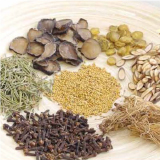Resume (Education and Working Experience)
Education:
- 2005 Bachelor Med. Shanghai Medical College, Fudan University
- 2007 Master Med. Shanghai Medical College, Fudan University
- 2013 Ph.D. Department of Rehabilitation Sciences, Hong Kong Polytechnic University
Working Experience:
- 2005-2007 Surgical Intern,Shanghai Huashan Hospital
- 2008-2008 Research Assistant, Department of Rehabilitation Sciences, Hong Kong Polytechnic University
- 2010-2011 Visiting Scientist, Department of Biomedical Engineering , Stony Brook University
- 2011-2013 Research Associate (part-time), Department of Rehabilitation Sciences, Hong Kong Polytechnic University
- 2013-2014 Research Assistant, School of Chinese Medicine, The Chinese University of Hong Kong
- 2014-2017 Postdoctoral Fellow, School of Chinese Medicine, The Chinese University of Hong Kong
- 2017-2019 Research Associate, School of Chinese Medicine, The Chinese University of Hong Kong
- 2019-2025 Research Assistant Professor, School of Chinese Medicine, The Chinese University of Hong Kong
- 2025-present Assistant Professor, School of Chinese Medicine, The Chinese University of Hong Kong
|
|
Selected Publications
- Chen Z, Zhang N, Chu HY, Yu Y, Zhang ZK*, Zhang G, Zhang BT. Connective Tissue Growth Factor: From Molecular Understandings to Drug Discovery. Front Cell Dev Biol 2020;8:593269. DOI:10.3389/fcell.2020.593269.
- Zheng Y, Wang X, Zhang ZK#, Guo B, Dang L, He B, Zhang C, Zhou J, Shi W, Zhao Y, Zhan H, Xu Y, Liang C, Liu J, Guan D, Wang L, Wu X, Li J, Zhuo Z, Lin Z, Qiu H, Zhong L, Bian Z, Shi Y, Zhang BT, Zhang G, Lu A. Bushen Yijing Fang Reduces Fall Risk in Late Postmenopausal Women with Osteopenia: A Randomized Double-blind and Placebo-controlled Trial. Sci Rep 2019;9(1):2089. DOI:10.1038/s41598-018-38335-3.
- Zhang ZK, Li J, Guan D, Liang C, Zhuo Z, Liu J, Lu A, Zhang G, Zhang BT. Long Noncoding RNA lncMUM
A Reverses Established Skeletal Muscle Atrophy following Mechanical Unloading. Mol Ther 2018;26(11):2669-80. DOI:10.1016/j.ymthe.2018.09.014.
- Zhang ZK, Li J, Guan D, Liang C, Zhuo Z, Liu J, Lu A, Zhang G, Zhang BT. A newly identified lncRNA MAR1 acts as a miR-487b sponge to promote skeletal muscle differentiation and regeneration. J Cachexia Sarcopenia Muscle 2018;9(3):613-26. DOI:10.1002/jcsm.12281.
- Liang C, Li F, Wang L, Zhang ZK#, Wang C, He B, Li J, Chen Z, Shaikh AB, Liu J, Wu X, Peng S, Dang L, Guo B, He X, Au DWT, Lu C, Zhu H, Zhang BT, Lu A, Zhang G. Tumor cell-targeted delivery of CRISPR/Cas9 by aptamer-functionalized lipopolymer for therapeutic genome editing of VEGFA in osteosarcoma. Biomaterials 2017;147:68-85. DOI:10.1016/j.biomaterials.2017.09.015.
- Zhang ZK, Guo X, Lao J, Qin YX. Effect of capsaicin-sensitive sensory neurons on bone architecture and mechanical properties in the rat hindlimb suspension model. J Orthop Translat 2017;10:12-7. DOI:10.1016/j.jot.2017.03.001.
- Guo B, Zhang ZK#, Liang C, Li J, Liu J, Lu A, Zhang BT, Zhang G. Molecular Communication from Skeletal Muscle to Bone: A Review for Muscle-Derived Myokines Regulating Bone Metabolism. Calcif Tissue Int 2017;100(2):184-92. DOI:10.1007/s00223-016-0209-4.
- He B, Zhang ZK#, Liu J, He YX, Tang T, Li J, Guo BS, Lu AP, Zhang BT, Zhang G. Bioinformatics and Microarray Analysis of miRNAs in Aged Female Mice Model Implied New Molecular Mechanisms for Impaired Fracture Healing. Int J Mol Sci 2016;17(8):E1260. DOI:10.3390/ijms17081260.
- Zhang ZK, Li J, Liu J, Guo B, Leung A, Zhang G, Zhang BT. Icaritin requires Phosphatidylinositol 3 kinase (PI3K)/Akt signaling to counteract skeletal muscle atrophy following mechanical unloading. Sci Rep 2016;6:20300. DOI:10.1038/srep20300.
- Zhang ZK, Li J, Yan DX, Leung WN, Zhang BT. Icaritin Inhibits Collagen Degradation-Related Factors and Facilitates Collagen Accumulation in Atherosclerotic Lesions: A Potential Action for Plaque Stabilization. Int J Mol Sci 2016;17(2):E169. DOI:10.3390/ijms17020169.
* Corresponding Author; # Co-first Author |





